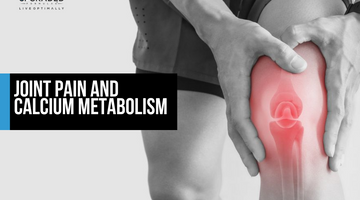joint health
- All
- abdominal pain
- absorption
- acetyl
- achy joints
- acid reflux
- Acid-base balance
- acne
- activated charcoal
- acute toxicity
- adaptogens
- adhd
- adolescent
- adrenal
- adrenal adrenal glands
- adrenal fatigue
- adrenal fatigue stress
- adrenal glands
- adrenal health
- adrenal ratio
- adrenals
- aging
- agitation
- alcohol
- aldosterone
- allergies
- allergy
- alopecia
- aluminum
- alzheimer's
- amino acids
- andropause
- anemia
- anger
- anorexia nervosa
- anti bacterial
- anti fungal
- anti viral
- antiaging
- antifungal
- antimicrobial
- antimony
- antioxidant
- Antioxidant Protection
- antiperspirant
- antiviral
- Anxiety
- anxious
- appetite
- are there side effects to magnesium
- aresenic
- Arginine
- arsenic
- arsenic toxicity
- arterial calcification
- arterial stiffness
- arthritis
- ascorbic acid
- asthma
- Atheroscelrosis
- athletes
- autism
- autoimmunity
- b vitamins
- b1
- b12
- b6
- bacteria
- bacterial infection
- bad habits
- barium
- barium toxicity
- bariyum
- barton scott
- beard
- belly fat
- benefits of magnesium
- benefits of magnesium supplements
- best mineral supplements
- Best self
- best supplements
- bi polar
- bi polar disorder
- bile
- bile production
- Biohacking
- biosynthesis
- biotin
- bipolar disorder
- bismuth
- bitters
- bleeding gums
- blindness
- bloating
- blood cells
- blood circulation
- blood flow
- blood glucose
- blood pressure
- blood sugar
- blood sugar dysregulation
- blood sugar imbalance
- blood sugar insulin
- blue light
- body fat
- body oil
- bone broth
- bone density
- bone health
- bone mineralization
- bones
- Books
- boric acid
- boron
- bowl pattern
- brain fog
- brain health
- breast pain
- breathwork
- bromide
- bromine
- burnout
- ca:k ratio
- ca:mg
- cadm
- cadmium
- cadmium toxicity
- caffeine
- calcification
- calcium
- calcium deficiency
- calcium fluoride
- calcium shell
- calm
- calming
- calories
- camdium
- Can magnesium help with anxiety
- Can magnesium help with panic attacks
- Can magnesium make you tired the next day
- cancer
- candida
- carb metabolism
- carbohydrates
- carbs
- cardiovascular disease
- cardiovascular health
- cartilage
- cataracts
- cell growth
- cell permeability
- cellular hypothyroidism
- cellulite
- cerebral palsy
- ceruloplasmin
- charcoal
- chelation therapy
- Chelator
- chemical toxicity
- chest pain
- children
- chloride
- chlorinated pools
- chlorine
- cholesterol
- choline
- chromium
- chromium deficiency
- chromium toxicity
- chronic fatigue
- chronic inflammation
- chronic pain
- chronic stress
- chronic toxicity
- cigarettes
- circulation
- CKD
- clinical trial
- cobalt
- cobalt toxicity
- coffee enema
- coffee enemas
- cognition
- cognitive function
- cold
- collagen
- collagen production
- Collodial Silver
- concentration
- conjunctivitis
- constipation
- copper
- copper deficiency
- copper dysregulation
- copper toxicity
- core minerals
- coronary heart disease
- coronavirus
- cortisol
- cough
- covid
- covid 19
- cramps
- cramps constipation
- cravings
- cutting hair
- cyanocobalamin
- cystic fibrosis
- cysts
- dairy
- dehydration
- dementia
- dental enamel
- Depression
- dermatitis
- detox
- detoxification
- detoxing
- diabetes
- diabetes blood sugar dysregylation
- diarrhea
- diet
- digestion
- digestive enzymes
- digestive health
- digestive issues
- disease prevention
- dizziness
- DNA
- dna synthesis
- does magnesium help with anxiety
- dopamine
- drugs
- dry brushing
- dry eyes
- dry hair
- dry mouth
- dry skin
- dysmenorrhea
- Dyspareunia
- eating better
- Eczema
- EDS
- Ehlers-Danlos Syndrome
- electro magnetic fields
- electrolytes
- electrolytes blood pressure
- emf
- emfs
- emotional
- Emotional health
- emotions
- emunctory organs
- endocrine
- Endometriosis
- endorphins
- enema
- energy
- energy level
- enzyme function
- epilepsy
- erectile dysfunction
- estrogen
- estrogen dominance
- exercise
- exfoliation
- eye health
- eye redness
- faitgue
- families
- FAQ
- fast oxidation
- fast oxidizer
- Fasting
- fat
- fat distribution
- fat management
- fat metabolism
- fatigue
- fe:cu ratio
- fertility
- fever
- Fiber
- fibrocystic breasts
- fibromyalgia
- fluid balance
- fluoride
- fluorine
- Fluorosis
- focus
- folate
- follicle devlopment
- food poison
- forms of magnesium
- fruit
- fulvic acid
- functional labs
- functional testing
- fungal
- fungal infections
- fungus
- gall bladder
- gallbladder
- gallstones
- genes
- genetics
- germs
- ginseng
- glaucoma
- glucagon
- gluconeogenisis
- glucose
- glutathione
- glycogen
- glycolisis
- gold
- good habits
- gout
- grapeseed extract
- grave's disease
- green tea
- grey hair
- greying
- gut brain axis
- gut health
- h.pylori
- habits
- hair
- hair test
- hair analysis
- hair color
- hair health
- hair loss
- hair loss. hair growth
- hair test
- hair test kit
- hair testing
- hair tiss
- hair tissue mineral analysis
- halogens
- hangry
- hashimoto's
- hashimotos
- headaches
- health
- Health and wellness
- hearing loss
- heart
- heart attack
- heart disease
- heart failure
- heart health
- Heart Problems
- heavy metal
- heavy metal detox
- heavy metal exposure
- heavy metal toxicity
- heavy metal toxicity analysis
- heavy metals
- heavy metals quiz
- hemochromatosis
- high blood pressure
- high blood sugar
- high ca:mg ratio
- high calcium:magnesium ratio
- high cholesterol
- high copper
- high estrogen
- high nickel
- histamine
- holistic
- Hormonal Balance
- hormonal imbalances
- hormone
- Hormone Function
- hormone problems
- Hormone Production
- hormone regulation
- hormones
- hot flashes
- how long does it take for magnesium to start working
- how long does magnesium take to work for anxiety
- how much magnesium should I take for anxiety
- htma
- hunger
- hydration
- hydration levels
- hydrochloric acid
- Hydrofluosilicic Acid
- hygiene
- hyperactivity
- hyperglycemia
- hyperlgycemia
- Hyperparathyroidism
- hypertension
- hyperthyroid
- hyperthyroidism
- hypoglycemia
- hypotension
- hypothyroid
- hypothyroidism
- immune health
- immune system
- immunity
- improve sleep
- infection
- infections
- infertility
- inflammation
- injuries
- insomnia
- insulin
- insulin problems
- insulin resistance
- Insulin Sensitivity
- intestines
- iodide
- iodine
- iodine deficiency
- iodine loading test
- iodione patch test
- ionic mimicry
- iron
- iron benefits
- iron deficiency
- iron metabolism
- iron overload
- iron recycling system
- is magnesium good for anxiety
- itchy
- japan
- joint health
- joint pain
- joints
- kidne
- kidney
- kidney disease
- kidney health
- kidneys
- kids
- l carnitine
- L pattern
- L-arginine
- lactation
- lead
- lead exposure
- lead toxicity
- libido
- life and death ratio
- lifestyle ratio
- ligaments
- light
- liquid iodine
- lithium
- live optimally
- liver
- liver cancer
- liver cleanse
- liver detox
- Liver Detoxification
- liver disease
- liver health
- Liver issues
- liver thyroid
- long hauler
- long haulers syndrome
- loose stool
- low blood pressure
- low blood sugar
- Low Calcium
- low immune system
- low magnesium
- low testosterone
- low zinc
- lupus
- lyme
- lymph
- lymphatic system
- m
- maca
- magnesium
- magnesium and sleep
- magnesium benefits
- magnesium burn rate
- magnesium citrate
- magnesium deficiency
- magnesium doses
- magnesium for anxiety
- magnesium for insomnia
- magnesium for sleep
- magnesium glycinate
- magnesium levels
- magnesium supplement
- magnesium supplements
- manganese
- manganese deficiency
- manganese toxicity
- mania
- medical conditions
- medication
- meditation
- melatonin
- memory
- men's health
- men's health bundle
- menopause
- menstrual cramps
- mental clarity
- mental disorder
- mental health
- mental health disorder
- mental health disorders
- mental health hygiene
- mercury
- mercury toxicity
- Metabolic health
- metabolic type
- metabolic typing
- metabolism
- metallothionein
- methionine
- methylcobalamin
- migraines
- mineral antagonists
- mineral balancing
- mineral deficiency
- mineral imabalces
- mineral imbalances
- mineral levels
- mineral rich foods
- mineral synergists
- mineral testing
- minerals
- mold
- mold toxicity
- molybdenum
- Mood
- mood disorders
- mood swing
- most accurate hair analysis testing
- most bioavailable mineral supplements
- most important supplements
- msod
- mthfr
- muscle cramps
- muscle function
- muscle gain
- muscle mass
- muscle pain
- muscle soreness
- muscle spasms
- Muscle Weakness
- Muscles
- myelin
- na:k
- na:k ratio
- na:mg
- na:mg ratio
- nafld
- nail health
- nails
- nano minerals
- nausea
- nerve function
- nerve health
- nerves
- nervous system
- nervous system muscle spasms
- nervousness
- new years
- new years resolutions
- nickel
- nickel toxicity
- nicotine
- night sweats
- nitric oxide
- non alcoholic liver disease
- not living your truth
- numbness
- nutrient deficiencies
- nutrients
- nutrition
- Nutritional deficiencies
- obesity
- oil
- oral health
- organ meats
- osteoarthritis
- osteopenia
- osteoporosis
- overweight
- oxalates
- Oxidative Stress
- oysters
- ozempic
- pain
- pancreatic enzymes
- parasites
- parathyroid hormone
- pathogens
- PCOS
- peak thyroid
- penumonia
- pepsin
- period
- peruvian ginseng
- pH balance
- phosphorus
- phosphorus deficiency
- physical health
- pituitary
- platinum
- PMS
- pnacreas
- podcast
- poly cystic ovarian syndrome
- poly cystic ovaries
- poor diet
- poor sleep
- potassium
- potassium deficiency
- Potassium levels
- potassium thyroid
- potatoes
- Preeclampsia
- pregnancy
- pregnant women
- Premenstrual Syndrome
- probiotics
- processing emotions
- progesterone
- progesterone levels
- Prolactin
- prostate
- protein
- protein metabolism
- psoriasis
- pubic hair
- purines
- pyrdoxine
- pyridoxine
- pyruvate kinase
- quiz
- radiation
- radioactivity
- raynaud's disease
- reasons you can't sleep
- recovery
- red blood cells
- red light therapy
- reduce stress
- rem sleep
- reproductive health
- resolutions
- respiratory
- rest
- retinol
- reverse L pattern
- rheumatoid arthritis
- RNA
- rosacea
- rubidium
- rubidium deficiency
- S7
- sadness
- salt
- sarcopenia
- sauna therapy
- scalp hair
- schizophrenia
- science
- seafood
- seizures
- selenium
- selenium deficiency
- serotonin
- sexual activity
- shilajit
- should magnesium be taken at night
- silica
- skin
- skin disease
- Sleep
- sleep patterns
- sleep problems
- slow metabolism
- slow oxidizer
- smoke
- smoking
- sodium
- sodium deficiency
- sodium fluoride
- sodium:potassium ratio
- sour foods
- Spasms
- sperm health
- spring detox
- step up pattern
- stiffness
- stimulants
- stomach
- stomach acid
- stomach acidity
- strength
- strep
- stress
- stroke
- sugar
- suicide
- sulfur
- supplements
- sweat
- sweating
- swelling
- sympathetic dominance
- sympathetic nervous system
- taking magnesium
- technology
- teenagers
- teeth
- temperature
- temperature regulation
- testicle
- testing
- testosterone
- testosterone upgraded t
- thanksgiving
- Theobromine
- thiamine
- thirst
- thyroid
- thyroid health
- thyroid issues
- tin
- tingling
- tinnitus
- tiredness
- tissue oxygenation
- titanium
- toe fungus
- tongkat ali
- tooth enamel
- total upgrade
- toxicity
- toxicity quiz
- toxins
- trace minerals
- trauma
- Tremors
- tumors
- tungsten
- type 2 diabetes
- type of hair
- types of magnesium
- under arm hair
- uograded zinc
- upgraded boron
- upgraded calcium
- upgraded chromium
- upgraded copper
- upgraded cramp relief
- upgraded detox + debloat
- Upgraded Iodine
- Upgraded Iron
- upgraded magnesium
- upgraded manganese
- upgraded memory
- upgraded metabolism
- upgraded mood
- upgraded potassium
- Upgraded Selenium
- Upgraded Sugar Support
- Upgraded T
- upgraded trace minerals
- upgraded zinc
- uranium
- uric acid
- urine
- vagus nerve
- vanadium
- Vascular Issues
- viral
- viral infections
- virus
- viruses
- vision changes
- vitality ratio
- vitamin c
- vitamin a
- vitamin b1
- vitamin b12
- vitamin b3
- Vitamin B6
- vitamin c
- vitamin d
- vitamin d deficiency
- Vitamin D3
- vitamin e
- vitamin k
- vitamin k2
- vitamin supplements
- vitamins
- vomiting
- water
- water retention
- weakness
- weight gain
- weight loss
- well-being
- what are the benefits of taking magnesium
- what should you not take with magnesium
- When should I take my magnesium
- which form of magnesium is best for anxiety
- white hair
- who can do hair tetsing
- who needs magnesium
- who should not take magnesium
- wilsons disease
- womens hormones
- wound healing
- wounds
- yeast infections
- yoga
- zinc
- Zinc and copper balance
- zinc deficiency
- zinc supplements
- zinc.
- zirconium
Can Low Sulfur Affect Your Joints?
Did you know stiff joints might tell you something about your sulfur levels? It's true! Sulfur is super essential for keeping our joints happy and healthy. It helps make collagen, which is like the cushion for our joints. It also helps fight inflammation and keeps our cartilage strong. But here's the thing - some people need more sulfur in their diets or need help absorbing it. This can lead to all sorts of joint problems.
Can Lead Toxicity Cause Osteoarthritis?
Ever heard of osteoarthritis? It's the most common type of arthritis out there, and it's no fun at all. Imagine your joints getting all achy and stiff, making it hard to move around like you used to. That happens when the cushiony stuff between your bones (called cartilage) starts fading. Millions of people deal with this daily, which can affect your quality of life. But here's the thing - there's more to osteoarthritis than just getting older. In this blog, we will dive into what causes it, some surprising factors you might not know about, and what you can do if you're dealing with it.
How Does Hydrogen Support Our Health?
Have you ever wondered about the tiny things that make a huge difference in our health? Let's talk about molecular hydrogen - it's not just another science word but a super important element that keeps us healthy in ways we might not realize. Molecular hydrogen has antioxidant capacity, which means it can fight off strong oxidants known as free radicals, which are linked to oxidative stress. Oxidative stress happens when there's an imbalance between free radicals and our body's ability to detoxify their harmful effects.
Can Silica Help With Bone Density?
Did you know that silica is essential for our bones? It's a trace mineral that can help keep them from getting weak and breaking. When bones lose their strength, it's called bone loss, and it's not fun because it can make it harder for us to run and play. Silica is fantastic because it helps our bones stay dense – that means they're strong and less likely to break. This gets interesting: scientists, like those studying the Framingham Offspring Cohort, have found that people who eat more silica (or dietary silicon), like from green beans or bananas, can have better mineral density in their bones. It's like their bones have a superhero shield against getting weak!
Can Copper Help With Collagen Production?
Did you know that something really important in our bodies starts to disappear as we get a little older, like when we're in our mid-20s to 30s? It's called collagen, and it's like a magic ingredient that keeps our skin looking smooth and helps our bodies bend and move quickly. Imagine it as a special kind of glue that holds us together, making sure everything stays strong and works the way it's supposed to—from our bones to our hair! But when we don't have enough collagen, our skin can get wrinkly, our joints might feel stiff, and even our muscles can weaken. The cool part? We can eat certain foods to help our body make more collagen, including incorporating copper and citrus fruits into a balanced diet.
How Is Cobalt Necessary For Digestion?
Dealing with bloating or other digestive discomforts is unpleasant for anyone. However, few are aware that cobalt, a lesser-known trace mineral, could play a crucial role in alleviating gut health problems.
Can Magnesium Deficiency Affect Hydration?
Have you ever experienced dehydration so acutely that your skin feels parched, your mouth resembles a barren landscape, and your hands and legs begin to resemble a flaky autumn leaf? It's as though every step you take echoes the arid paths of the Sahara Desert.
Is Your Calcium Metabolism Causing Joint Pain?
Pain, an unwelcome experience at any stage of life, often leads us down the path of quick fixes, invariably ending with the temporary relief offered by pain medication. Yet, when it comes to joint pain – a condition notorious for its gradual onset and aggravating persistence – the go-to solution of merely 'popping a pill' falls alarmingly short of providing lasting relief. One commonly used medication for joint pain is acetaminophen, also known as Tylenol®.
How Boric Acid Can Fight Off Yeast Infections?
No one hopes to encounter a yeast infection, and it’s easy to see why. The symptoms—an encompassing discomfort, relentless itchiness, and, for some, considerable pain—are not just physically taxing but also mentally overwhelming. These symptoms can drastically impair one’s ability to concentrate on daily activities and provoke a genuine quest for immediate relief.










